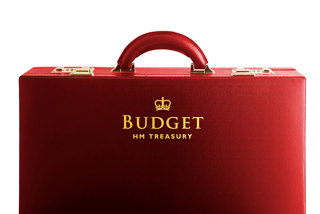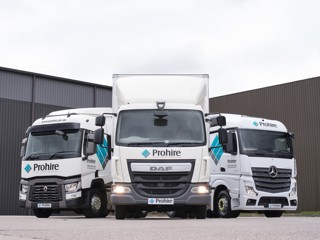The Chancellor is being urged to introduce new tax relief for small and medium-sized enterprises (SMEs) renting and leasing vehicles, ahead of the Budget.
Eight trade associations have written to the Chancellor calling for a new ‘green’ super-deduction aimed at SMEs to replace the existing programme when it comes to an end in March.
The original super-deduction was introduced in 2021, with fleet operators buying vans and trucks able to benefit from the tax relief.
The Government said that companies investing in qualifying new plant and machinery, from April 1, 2021, to March 31, 2023, would be able to claim a 130% super-deduction capital allowance, or a 50% first-year allowance (FYA) for qualifying special rate assets.
Expenditure qualifying for the super-deduction would have ordinarily been relieved at the main rate writing down allowance of 18%, while the special rate writing down allowance was 6%.
With the current super-deduction now ending, it reiterated that the omission of leasing and plat hire was a major flaw, despite the fact that many firms choose these options because it makes good business sense.
In the current economic conditions, many businesses want to maintain a little flexibility with their cash flow, or depending which sector they operate in, they do not want to buy an asset outright if they only need it for a few months at a time, or if they operate in a high-tech industry where obsolescence is a factor, it said.
Simon Goldie, director of business at the FLA, explained: “Net zero preparations are no longer the preserve of large firms with big budgets. Green investment is now a competitive issue for firms of all sizes because those credentials matter to suppliers, partners and customers.
“It’s vital that a green super deduction is put in place to help SMEs, but it also has to be a programme that allows businesses to choose the right funding option for their investment and their circumstances.
“Leasing and short-term hire are key to the funding mix, and any super deduction that does not include them is flawed by design.”
The FLA and the BVRLA, along with the Civil Engineering Contractors Association (CECA), the Engineering and Machinery Alliance (EAMA), the Forum of Private Business, Logistics UK, Make UK and the Manufacturing Technologies Association (MTA), have written a joint letter to the chancellor asking for a new green super-deduction to replace existing allowances for green plant and machinery, such as the 100% first year allowance (FYA) for electric vehicle (EV) charging points and electric vans, and the 50% FYA for plant and machinery which supports a business’s energy efficiency.
This, it says, would deliver simplicity for businesses, especially SMEs, which may otherwise not use capital allowances.
Toby Poston, BVRLA director of corporate affairs, said: “The leasing and rental exclusion in the current regime has created an unfair playing field that is hindering SMEs from making the leap to zero emission commercial vehicles.
“The enhanced allowances we’re recommending would boost business investment in zero emission technology and support the Government’s ambitious phase-out targets.”
Logistics UK’s senior policy manager, Denise Beedell, added: “With the deadline for net-zero by 2050 drawing closer and many logistics businesses operating on tight margins, continued support for investment is vital.
"Businesses are increasingly assessing their operations to transition to greener technologies and, in addition to increased financial pressures, uncertainty remains regarding the best approach for decarbonisation.
"With costs rising, purchasing assets outright may not be the most economically viable – especially for those who only need use on a part-time basis.
"As a result, many businesses are looking to lease or short-term hire, so we are calling on Government to maintain its support for investment and introduce a more flexible approach.”
She concluded: “Logistics businesses are keen to decarbonise their fleets to meet net zero targets, however, they are already facing a 12.6% rise in vehicle operating costs, a reduction in energy support and a potential 23% increase in fuel duty.
"The creation of the suggested green super-deduction would provide much needed financial support and encourage greater investment in zero emission technologies.”
The BVRLA and FLA Green Super Deduction paper can be found here.






















Login to comment
Comments
No comments have been made yet.